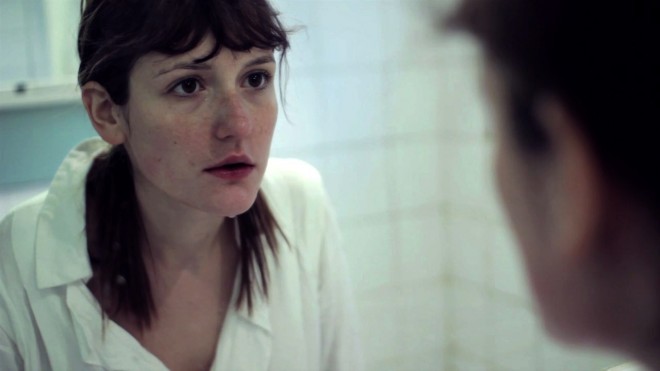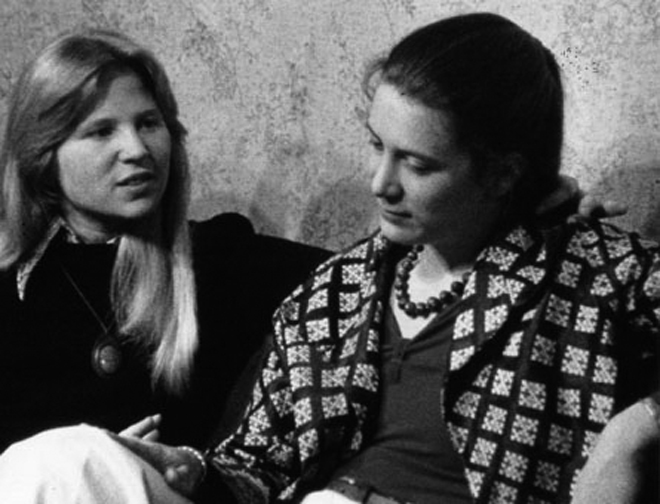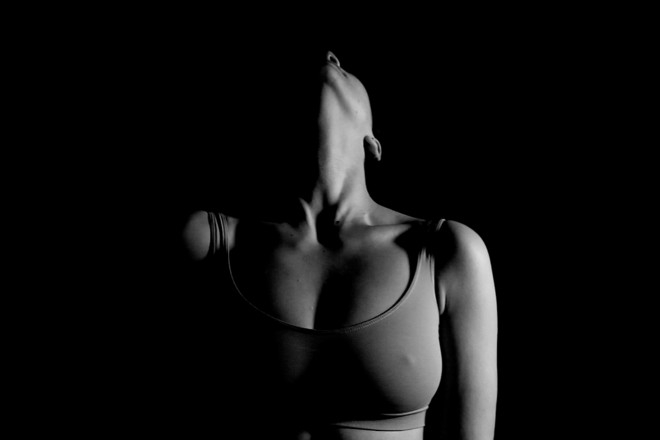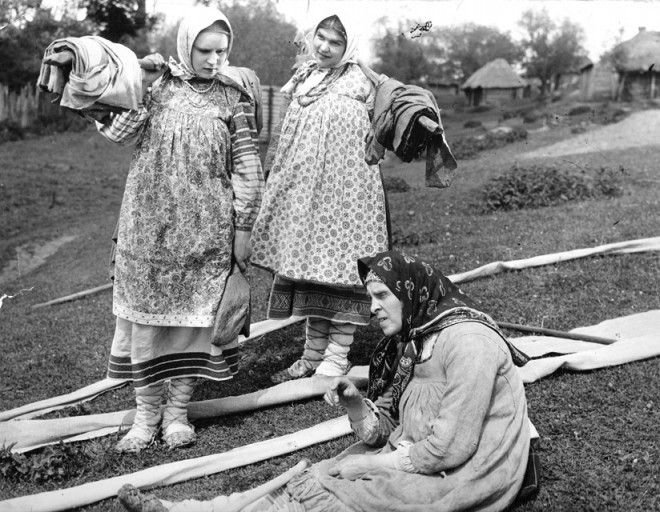When Kathryn Bigelow won a bevy of awards including two Oscars for her 2008 film Hurt Locker she made history as the first woman to ever be named best director. That said, three years on the fact remains that women are still marginalised, not to mention underrepresented and oversexualised in cinema.
UnderWire plans to change that. As the UK’s only short film festival dedicated to showcasing women’s work it already has the support of such seminal female creatives as Laura Mulvey, author of Visual and Other Pleasures, Fetishism and Curioisity, journalist Samira Ahmed and Nira Park, producer of Scott Pilgrim v the World and Attack the Block. Established by Gabriella Apicella and Gemma Mitchell in 2010, co-directors of UnderWire 2011 Mitchell and Helen Jack hope to recognise women’s talents through awards, open up the dialogue about women in film and, ultimately, readdress the gender balance within the UK industry.

Comes But Once a Year, dir Justine Barker
(Top) Prohyb, dir Katarina Complova
UnderWire 2011 is at Shortwave cinema and Bermondsey Square Hotel from 23rd – 26th November 2011. See the full programme here
Tags: Bermondsey Square Hotel, Cinema, film, Hurt Locker, Kathryn Bigelow, Laura Mulvey, Shortwave cinema, Underwire film festival
It seems shocking that only one woman – Kathryn Bigelow – has ever been awarded the Best Director Oscar, when you consider that women have been making films since the birth of cinema. It’s that lack of recognition of women in film that drives Cinenova – a volunteer-led collective that’s dedicated to preserving and distributing the work of female filmmakers, artists and activists. This month they’re opening up their impressive archive in an exhibition called Reproductive Labour at THE SHOWROOM gallery.
Films from Cinenova’s collection will be screened daily – it’s a rare opportunity to see pivotal works from the history of feminist, black, queer and experimental film and video. There are silent films from the early days of cinema, documentaries, shorts and feature-length works dealing with themes like post-colonial struggles, domestic work and representation of gender and sexuality.
A quick browse through the 500 titles in Cinenova’s online catalogue threw up some intriguing names: French pioneer Alice Guy is arguably the first ever filmmaker. She directed the 1906 feature The Life of Christ with a cast of 300, and used innovative techniques and special effects. Her contemporary, Lois Weber was Universal Studios’ highest paid director in 1916. She covered controversial social issues like abortion, alcoholism and birth control in films like Where Are My Children?, Hop and The Devil’s Brew (both 1916). One of her most successful films was The Blot (1921).
As well as showing these rare and precious films in their original state, the exhibition has a wealth of fascinating material – photographs, pamphlets and posters – to add some context to the work. The title of the exhibition – Reproductive Labour – also alludes to how much of a labour of love Cinenova is. Run entirely by volunteers, the charity is always struggling for survival and depends on donations for its loyal band of supporters to keep going.

Check THE SHOWROOM’s online calendar to find out which films are being screened and when (theshowroom.org/calendar). Our top picks are Peasant Women of Ryazan on Saturday the 12th February, and Broken Taboos and New Voices in Iran on Wednesday 23rd March at 6pm.
Reproductive Labour: An exhibition exploring the work of Cinenova runs until the 26th March
The Showroom, 63 Penfold Street, London NW8 8PQ
theshowroom.org
Words by Phoebe Frangoul
Images from top: Peasant Women of Ryazan by Olga Prebrazhenskaya (USSR 1927) and Daughter Rites.
Tags: Alice Guy, Cinenova, female filmmakers, feminist, Kathryn Bigelow, Phoebe Frangoul, Reproductive Labour, The Showroom






 Twitter
Twitter
 Tumblr
Tumblr
 YouTube
YouTube
 Facebook
Facebook
 Instagram
Instagram
